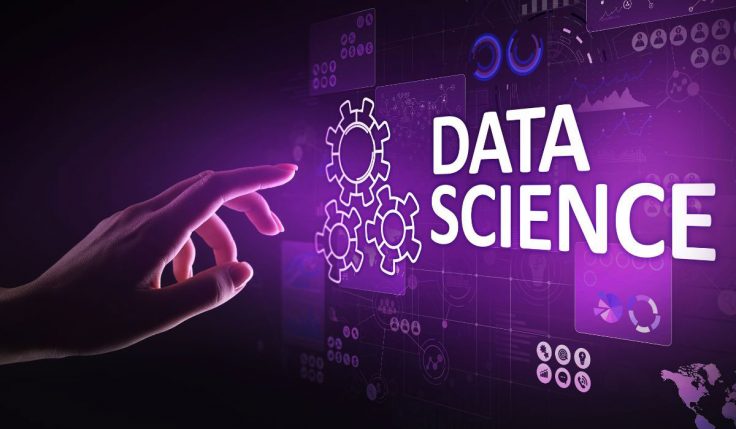Introduction:
Data now serves as the foundation for decision-making, innovation, and competitive advantage in the digital age. As a result, fields like business analytics and data analytics have gained significant prominence. Understanding the distinctions between these two fields is essential for students who want to work in the field of data-driven insights. In this article, we delve into the comparison of business analytics and data analytics, exploring their distinct focuses, applications, and career prospects, helping you make an informed decision about your future path.
Also, read: A Right Guide to Become Business Analyst
Business Analytics: Harnessing Data for Strategic Insights
The methodology, tools, and techniques used to analyse data and produce useful insights for business decision-making are collectively referred to as “business analytics.” Data mining, predictive modelling, statistics, and data visualisation are all combined in this multidisciplinary discipline. Business analytics aims to answer strategic questions and solve complex business problems by leveraging data.
Business analytics experts concentrate on comprehending business processes, locating important performance indicators, and utilising data to improve operations, spur growth, and add value. They work closely with stakeholders to provide data-driven recommendations, develop forecasting models, conduct market analysis, and support strategic planning.
Data Analytics: Uncovering Patterns and Trends in Data
Data analytics is a broader field that encompasses the processes of examining, cleaning, transforming, and modeling data to uncover meaningful patterns, trends, and insights. To extract knowledge and create data-driven decisions, it applies statistical analysis, data mining, and machine learning approaches.
Data analysts primarily work with data sets, extracting valuable information and providing descriptive and diagnostic analysis. They focus on understanding patterns, identifying correlations, and gaining insights from historical and real-time data. Data analytics is essential in many industries, including finance, healthcare, marketing, and operations. It enables businesses to streamline operations, increase productivity, and gain a competitive advantage.
Choosing the Right Path for Your Future:
Both business analytics and data analytics offer promising career paths with a high demand for skilled professionals. The decision between the two will, however, be influenced by your hobbies, professional objectives, and the kind of employment that most fulfils you. Here are a few considerations to help guide your decision:
Focus and Scope: Business analytics is geared towards strategic decision-making and solving complex business problems. If you have a keen interest in understanding the intricacies of organizations, driving growth, and implementing data-driven strategies, business analytics may be a better fit. On the other side, data analytics may be more in line with your interests if you enjoy investigating data, finding patterns, and drawing conclusions.
Skill Set: Business analytics places emphasis on understanding business processes, domain knowledge, and communication skills. Technical know-how, analytical thinking, and the capacity to convert data insights into recommendations that can be put into practise are all necessary.. Data analytics, on the other hand, requires strong statistical and programming skills, data manipulation, and proficiency in tools and technologies for data analysis.
Career Opportunities: Both fields offer diverse and rewarding career opportunities. Business analytics professionals can find roles such as business analyst, data strategist, consultant, or even pursue entrepreneurship. Data analytics professionals can explore careers as data analysts, data scientists, data engineers, or work in specialized domains like marketing analytics or risk analytics. Consider the industry you’re passionate about and the types of roles that align with your career aspirations.
Decision-Making vs. Exploratory Analysis: Business analytics is often focused on providing insights and recommendations to support strategic decision-making. Professionals in this field work closely with stakeholders and executive teams to identify business goals, align analytics initiatives, and drive organizational outcomes. In contrast, data analytics frequently entails more exploratory research, in which analysts delve into data sets to find patterns, trends, and anomalies without necessarily focusing on specific business objectives.
Technical vs. Business Orientation: Business analytics typically requires a combination of technical skills and a strong understanding of business processes and industry dynamics. Effective business stakeholder communication, converting technical insights into workable plans, and comprehension of the wider consequences of analysis are all skills required of professionals in this discipline. Data analytics, while also requiring technical expertise, may place a greater emphasis on advanced statistical techniques, machine learning algorithms, and data manipulation.
Complexity of Data: Data analytics often deals with vast and complex datasets, including unstructured data, streaming data, or big data. Experts in data analytics must be comfortable with a number of data sources, preserving the quality and integrity of their data, and utilising cloud-based platforms or technologies like Hadoop.. While dealing with complicated data as well, business analytics may place more of an emphasis on sources of structured data like databases, transactional data, or customer data.
Industry and Domain Specificity: Consider the industries or domains that interest you the most. Professionals in business analytics are frequently employed across a range of industries, including supply chain, operations, marketing, healthcare, and finance. Their understanding of specific industry challenges and business drivers is essential for effective analysis and decision-making. Data analytics professionals can also work across industries, but their focus is more on the underlying data and statistical techniques rather than specific industry expertise.
Collaborative vs. Independent Work: In business analytics, professionals often work in teams or collaborate closely with business stakeholders. They need strong interpersonal skills to gather requirements, understand business needs, and present their findings effectively. Data analytics professionals may work independently or in smaller teams, spending a significant amount of time exploring data, performing statistical analysis, and developing models.
Long-Term Career Growth: Both business analytics and data analytics offer excellent prospects for career growth. However, it is worth considering the evolving nature of the fields. Data analytics is experiencing rapid advancements, with emerging technologies like artificial intelligence and machine learning driving innovation. Opportunities in cutting-edge disciplines like deep learning, natural language processing, or computer vision may be available to data analytics professionals. Business analytics, while also evolving, may focus more on strategic planning, executive-level decision support, and organizational transformation.
Also, read: A Complete Guide to Become Data Analyst in India
The decision between business analytics and data analytics ultimately comes down to your interests, skills, and long-term professional objectives. It may also be beneficial to seek advice from professionals in both fields, explore internships or job shadowing opportunities, and consider the specific courses and curriculum offered in each discipline. You may make a wise choice that fits your goals and puts you on the road to a fulfilling career in analytics by carefully weighing these considerations.






